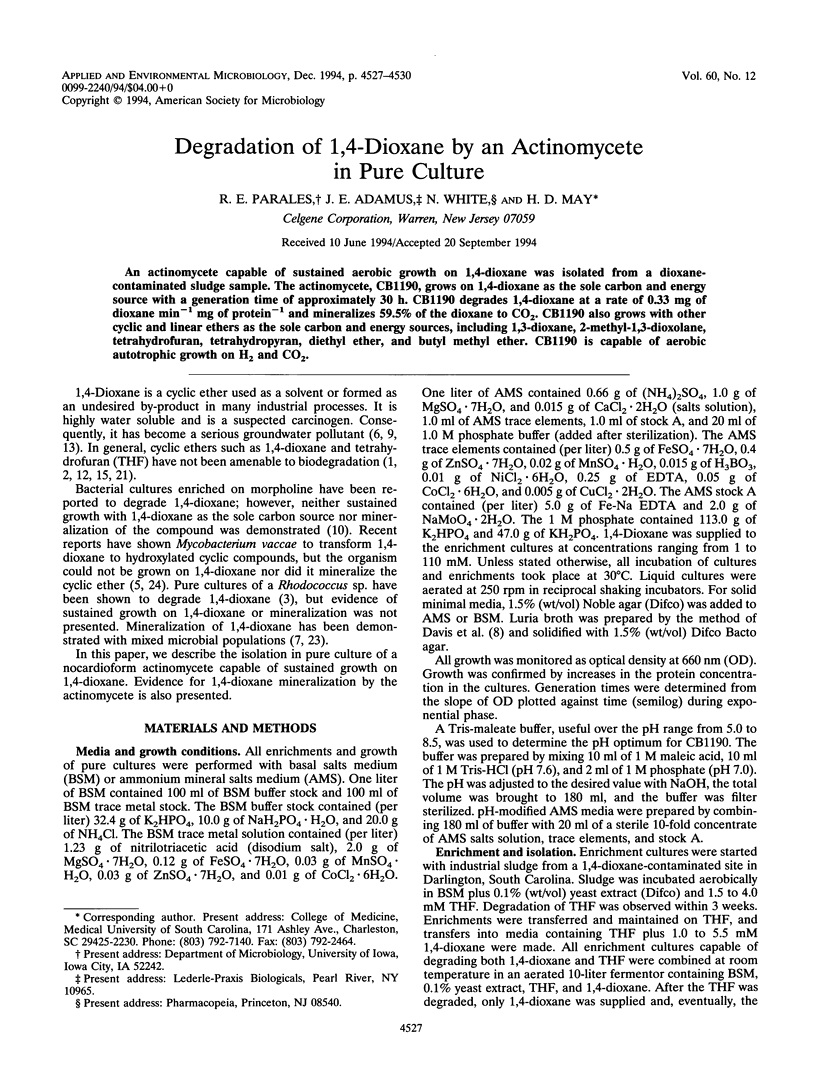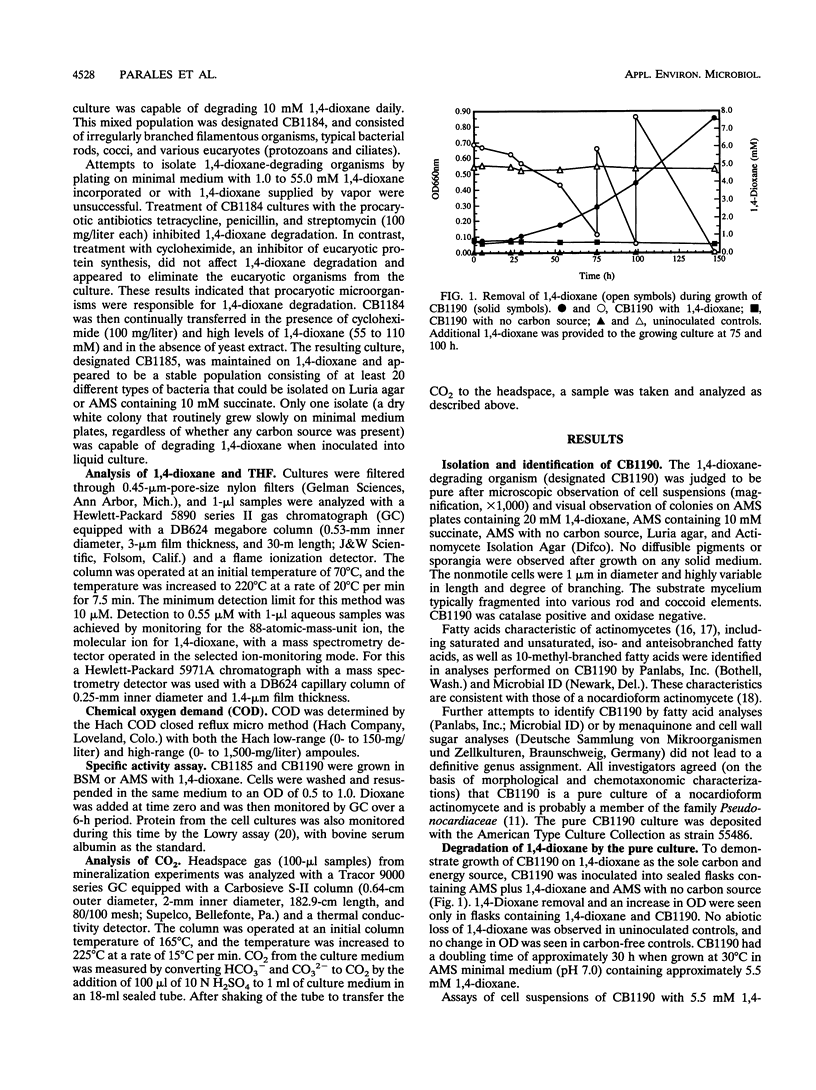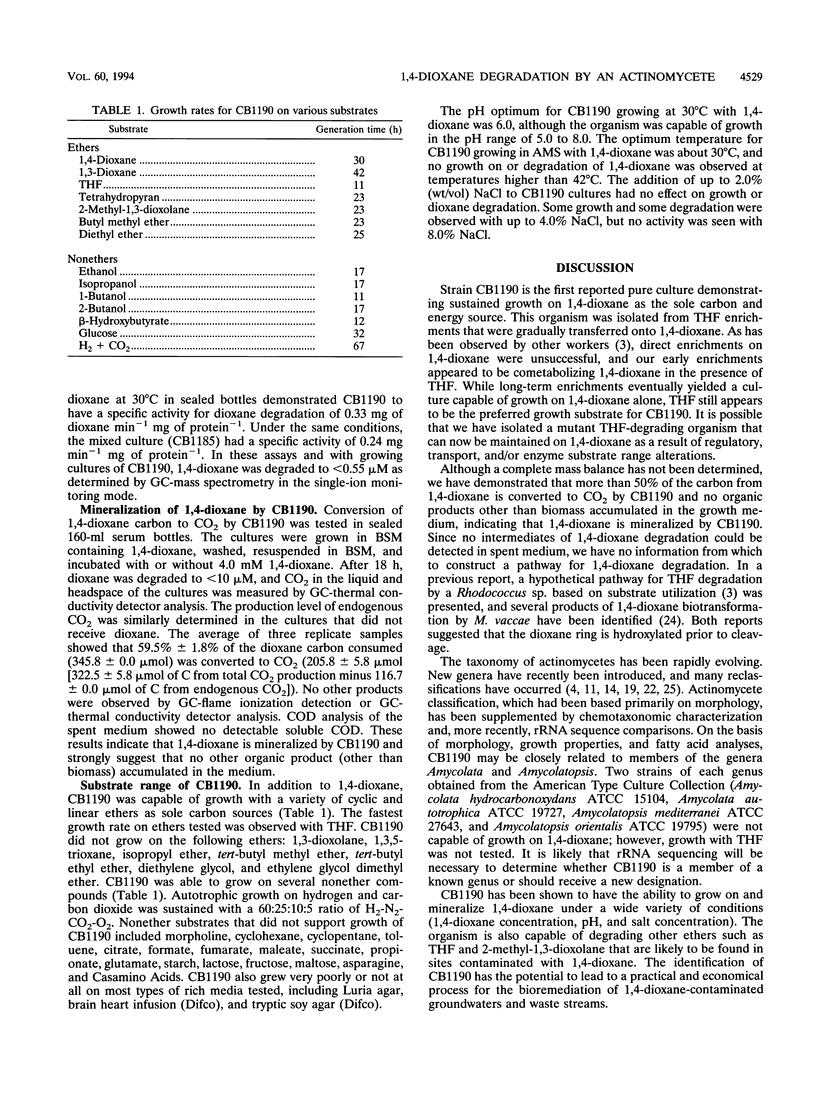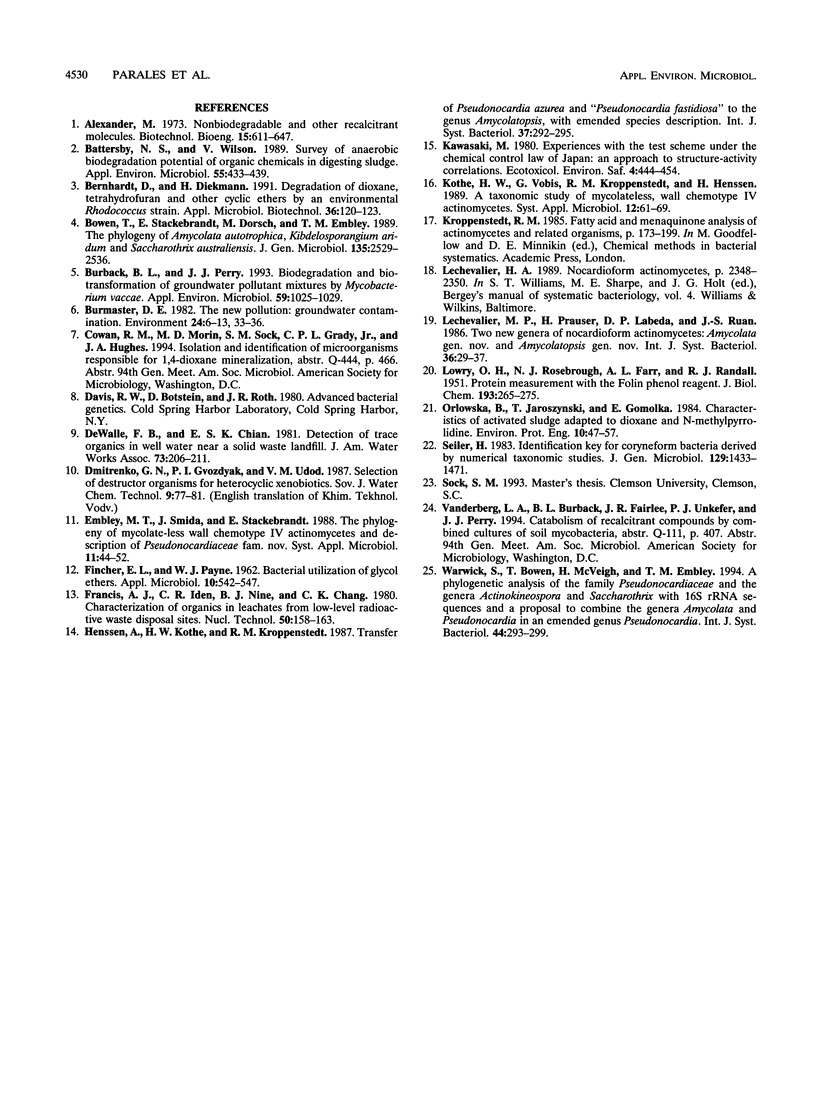Abstract
An actinomycete capable of sustained aerobic growth on 1,4-dioxane was isolated from a dioxane-contaminated sludge samples. The actinomycete, CB1190, grows on 1,4-dioxane as the sole carbon and energy source with a generation time of approximately 30 h. CB1190 degrades 1,4-dioxane at a rate of 0.33 mg of dioxane min-1 mg of protein-1 and mineralizes 59.5% of the dioxane to CO2. CB1190 also grows with other cyclic and linear ethers as the sole carbon and energy sources, including 1,3-dioxane, 2-methyl-1,3-dioxolane, tetrahydrofuran, tetrahydropyran, diethyl ether, and butyl methyl ether. CB1190 is capable of aerobic autotrophic growth on H2 and CO2.
Full text
PDF



Selected References
These references are in PubMed. This may not be the complete list of references from this article.
- Battersby N. S., Wilson V. Survey of the anaerobic biodegradation potential of organic chemicals in digesting sludge. Appl Environ Microbiol. 1989 Feb;55(2):433–439. doi: 10.1128/aem.55.2.433-439.1989. [DOI] [PMC free article] [PubMed] [Google Scholar]
- Bernhardt D., Diekmann H. Degradation of dioxane, tetrahydrofuran and other cyclic ethers by an environmental Rhodococcus strain. Appl Microbiol Biotechnol. 1991 Oct;36(1):120–123. doi: 10.1007/BF00164711. [DOI] [PubMed] [Google Scholar]
- Burback B. L., Perry J. J. Biodegradation and biotransformation of groundwater pollutant mixtures by Mycobacterium vaccae. Appl Environ Microbiol. 1993 Apr;59(4):1025–1029. doi: 10.1128/aem.59.4.1025-1029.1993. [DOI] [PMC free article] [PubMed] [Google Scholar]
- FINCHER E. L., PAYNE W. J. Bacterial utilization of ether glycols. Appl Microbiol. 1962 Nov;10:542–547. doi: 10.1128/am.10.6.542-547.1962. [DOI] [PMC free article] [PubMed] [Google Scholar]
- Kawasaki M. Experiences with the test scheme under the chemical control law of Japan: an approach to structure-activity correlations. Ecotoxicol Environ Saf. 1980 Dec;4(4):444–454. doi: 10.1016/0147-6513(80)90046-9. [DOI] [PubMed] [Google Scholar]
- LOWRY O. H., ROSEBROUGH N. J., FARR A. L., RANDALL R. J. Protein measurement with the Folin phenol reagent. J Biol Chem. 1951 Nov;193(1):265–275. [PubMed] [Google Scholar]
- Seiler H. Identification key for coryneform bacteria derived by numerical taxonomic studies. J Gen Microbiol. 1983 May;129(5):1433–1471. doi: 10.1099/00221287-129-5-1433. [DOI] [PubMed] [Google Scholar]
- Warwick S., Bowen T., McVeigh H., Embley T. M. A phylogenetic analysis of the family Pseudonocardiaceae and the genera Actinokineospora and Saccharothrix with 16S rRNA sequences and a proposal to combine the genera Amycolata and Pseudonocardia in an emended genus Pseudonocardia. Int J Syst Bacteriol. 1994 Apr;44(2):293–299. doi: 10.1099/00207713-44-2-293. [DOI] [PubMed] [Google Scholar]



